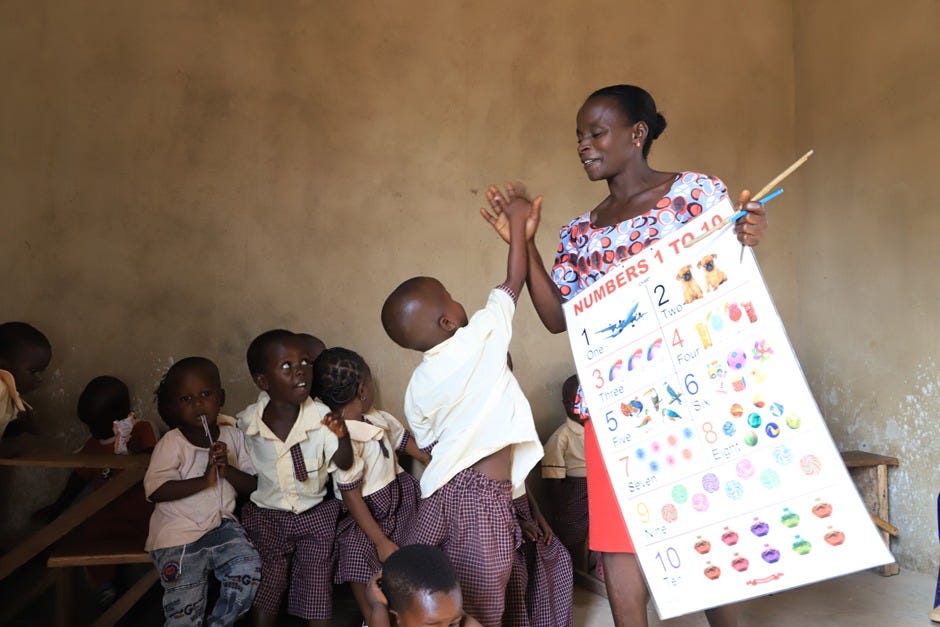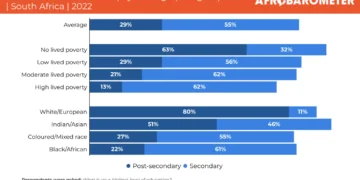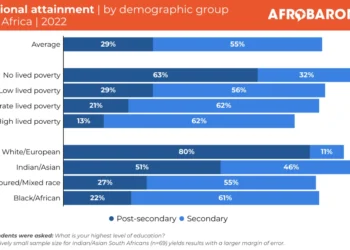
This article extensively explores the issue of the increasing number of out-of-school children in Nigeria, especially in the Northern region. The situation is extremely concerning and poses a grave threat to the future of the nation. The article identifies several factors that contribute to this problem, including economic barriers, conflicts, socio-cultural norms, and lack of inclusive practices. These challenges have resulted in a high rate of illiteracy and lack of interest in education among children. The article also suggests practical measures that can be taken urgently to address the issue and prevent its escalation.
According to UNICEF, Nigeria has the highest number of out-of-school children in the world, with approximately 10.5 million children aged 5-14 not receiving formal education. In the northern part of the country, only 29% and 35% of Muslim children respectively receive Quranic education, which does not include literacy and numeracy. Unfortunately, this issue is widespread in both rural and urban areas due to various reasons, including early and child marriage, economic challenges, conflict, and lack of inclusive practices.
The Punch (2023) also reported that the Minister of State for Education, Yusuf Sununu, has expressed concern about the issue of out-of-school children, particularly in the North, and has proposed the integration of Tsanga/Madara (religious) schools into the basic education system. The establishment of the National Commission for Almajiri and out-of-school children at the federal level has also been suggested.
The level of insecurity in the Northern region significantly contributes to this trend, with cases of abduction, such as the kidnapping of the Chibok girls in 2014, exacerbating the problem. Unfortunately, some of them are still in the custody of their captors, likely facing child marriage, rape, and other forms of abuse. Until the government resolves the issue of kidnapping, it will be challenging to persuade parents to send their children to school without the fear of abduction.
Apprenticeship is a significant factor responsible for the situation in the Southern part of the country, especially in the South East. This practice requires children to work for their employers for a set number of years without receiving a formal education, depriving them of the opportunity to attend primary and secondary schools as intended by their parents and guardians. Due to the societal norms in these states, many of these children are frequently sent to other states, ultimately hindering their educational development.
Despite the official declaration of free and compulsory education, the sad reality is that a large number of students are being denied formal education. It is crucial to raise awareness among parents and society about the importance of providing quality education to children, enabling them to reach their full potential for national growth and development. The laws requiring children to be admitted to schools should be enforced to reverse this trend, as a country’s education system shapes its future.
For effective teaching-learning processes to take place in a safe environment, Oyekan, et al (2003) also suggest the implementation of robust security measures that prioritize the safety and well-being of children, protecting them from attacks. Additionally, providing teachers with appropriate training on promoting inclusiveness in the classroom can help ensure that every learner, regardless of their gender or tribal background, is given equal opportunities to succeed. Adequate funding from the government is necessary to improve the quality of education and enable the sector to compete globally, with UNESCO’s recommendation of 26% serving as a benchmark for responsible investment.
REFERENCES
Oyekan, K., Ayorinde, A. and Adenuga, O. 2023. The Problem of Out-of-School Children in Nigeria. 2023/058. https://doi.org/10.35489/BSG-RISE-RI_2023/058
UNICEF (February, 2018). Evaluation Report: The Out-of-School Children Initiative (OOSCI) .
The Punch (December 27, 2023). Out-of-School Children Threat Persists





































































 EduTimes Africa, a product of Education Times Africa, is a magazine publication that aims to lend its support to close the yawning gap in Africa's educational development.
EduTimes Africa, a product of Education Times Africa, is a magazine publication that aims to lend its support to close the yawning gap in Africa's educational development.

